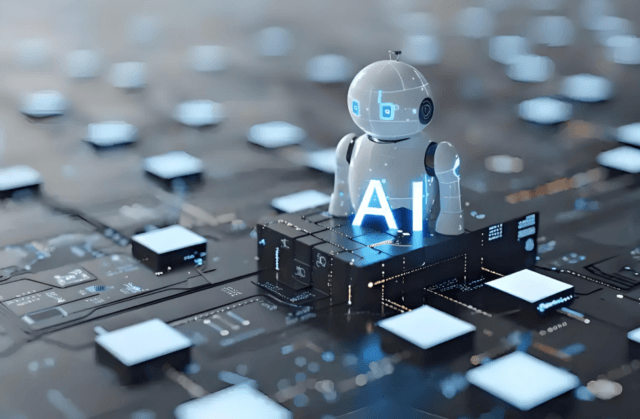What is The Impact of Ai on Engineering?
Die Auswirkungen von KI auf das Engineering: Transforming Innovation and Efficiency

The engineering industry has always been at the forefront of technological innovation, Und heute, Künstliche Intelligenz (Ai) entwickelt sich zu einer der transformativsten Kräfte. Mit seiner Fähigkeit, große Datenmengen zu analysieren, Prozesse optimieren, and enable smarter decision-making, AI is revolutionizing engineering across various sectors, from design and production to maintenance and logistics. As a conveyor system manufacturer, we understand firsthand how AI is reshaping our industry, making operations more efficient, cost-effective, and adaptable to the evolving needs of the market.
1. Enhancing Design and Customization
AI has dramatically improved the design phase of engineering projects. Traditionally, designing a conveyor system or other mechanical structures required lengthy calculations, simulations, and manual adjustments. With AI-powered tools, engineers can now create more efficient and customized designs with fewer iterations. These tools leverage machine learning algorithms that can predict performance, optimize materials, and suggest design improvements based on real-time data.
Zum Beispiel, AI can simulate how a conveyor system will perform under various conditions, enabling manufacturers to fine-tune designs before physical models are created. This not only accelerates the design process but also leads to more robust and energy-efficient systems, which directly benefit customers by reducing operational costs and increasing system longevity.
2. Streamlining Manufacturing and Production
In the manufacturing and production phase, AI plays a pivotal role in streamlining operations. From precision robotics to predictive maintenance, AI-driven automation is enhancing efficiency across the production line. In conveyor system manufacturing, AI algorithms can monitor equipment in real time, identifying potential issues before they lead to system failures. This proactive approach to maintenance significantly reduces downtime, ensuring smoother production flows and improved reliability.
Zusätzlich, AI technologies like machine vision and quality control systems can detect defects or inconsistencies in the production process that may go unnoticed by human operators. This improves product quality and consistency, ensuring that every conveyor system meets high standards without the need for extensive manual inspections.
3. Optimizing Logistics and Supply Chain Management
AI is also making significant strides in logistics and supply chain management, crucial components of industries that rely on conveyor systems for material handling. Machine learning algorithms can analyze historical data to predict demand, optimize inventory levels, and even suggest the most efficient delivery routes. These capabilities enable companies to reduce operational costs, minimize waste, and improve customer satisfaction by delivering products on time.
For conveyor manufacturers, AI can help optimize warehouse layouts, ensuring that conveyor systems are placed in the most efficient locations to facilitate the smooth flow of goods. By automating the movement of materials and products, AI reduces human error and enhances productivity, allowing businesses to meet the growing demands of a fast-paced market.
4. AI Revolutionizing Maintenance and Safety
One of the most promising applications of AI in engineering is in predictive maintenance. Rather than relying on scheduled maintenance or reacting to equipment failures, AI systems can monitor real-time data from sensors embedded in machinery and predict when maintenance is needed. This predictive capability allows manufacturers to address issues before they cause costly downtime or system failures, ultimately extending the life of conveyor systems and other equipment.
Zusätzlich, AI is improving safety in the workplace. By integrating AI with IoT (Internet of Things) devices and sensors, engineers can monitor working conditions, detect hazards, and intervene when necessary. This enhances the safety of both human workers and the machines they interact with, creating a more secure environment in manufacturing plants and warehouses.
5. Enabling Innovation and Sustainability
AI is driving innovation in the engineering industry by enabling new approaches to sustainability. In conveyor manufacturing, AI can optimize energy usage, ensuring that systems run efficiently and with minimal environmental impact. Machine learning algorithms can analyze energy consumption patterns and suggest improvements to reduce waste, contributing to more sustainable production practices.
Darüber hinaus, AI is helping engineers explore new materials, design methods, and production techniques that can further reduce the environmental footprint of conveyor systems. With increasing pressure on industries to adopt more sustainable practices, AI provides the tools needed to create innovative, environmentally-friendly solutions without compromising on performance or reliability.
Conclusion
Artificial Intelligence is no longer a distant concept but a central force shaping the future of engineering. For companies like ours, the integration of AI in the design, manufacturing, and maintenance of conveyor systems presents a wealth of opportunities to improve efficiency, reduce costs, and enhance customer satisfaction. As AI continues to evolve, its impact on engineering will only grow, opening doors to even greater innovation and progress. At [Your Company Name], we are committed to staying at the cutting edge of these advancements, ensuring that we deliver the best, most reliable conveyor solutions to meet the needs of today’s dynamic market.

